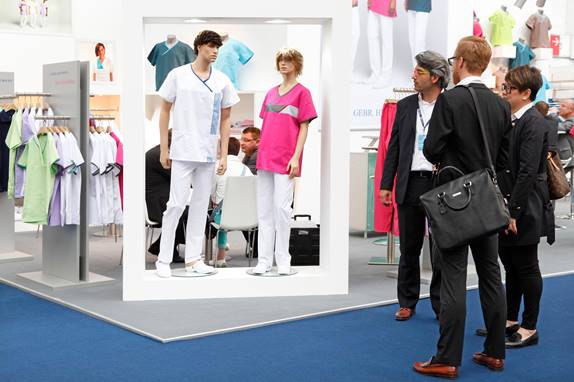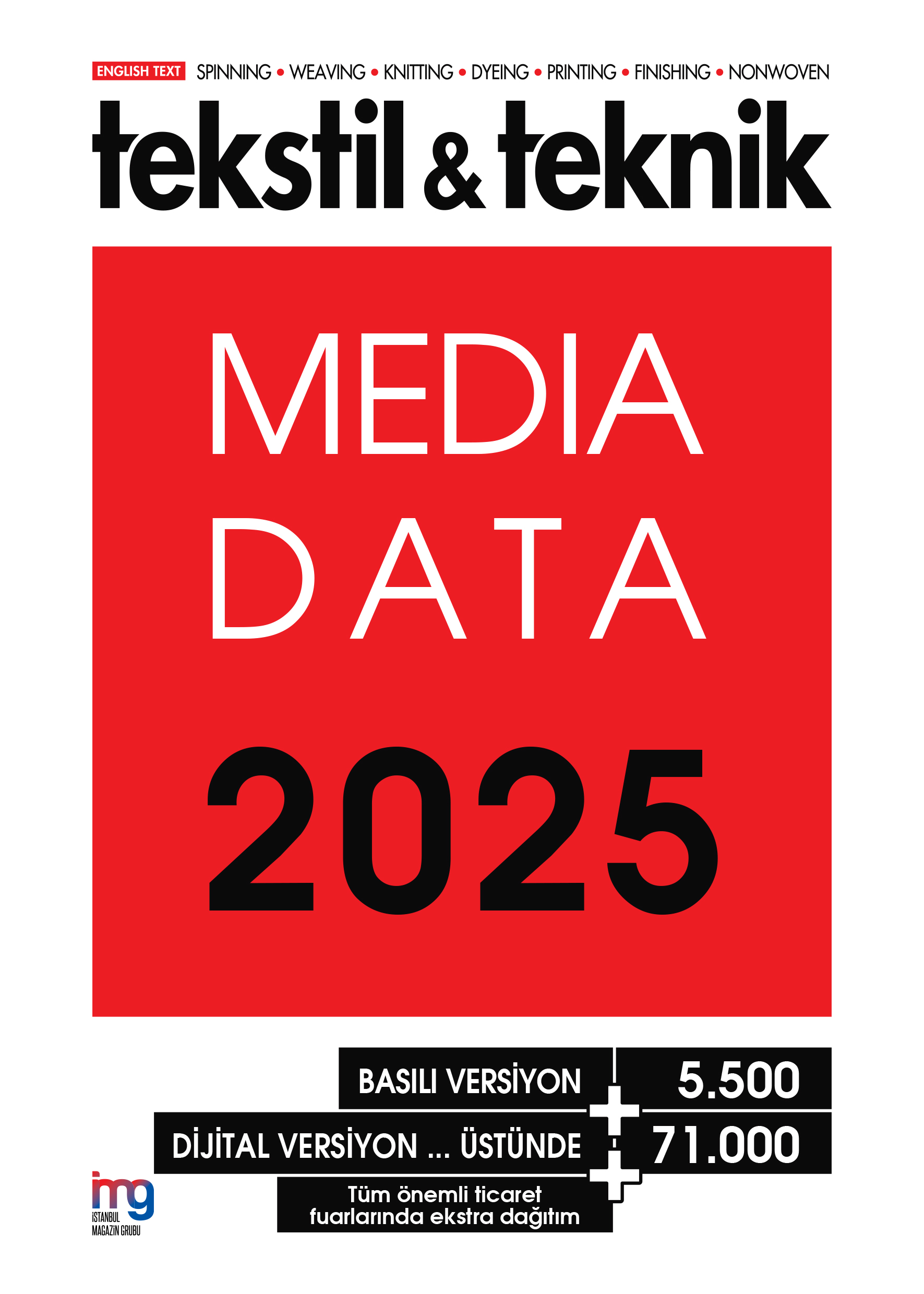 A sustainable sector takes its responsibilities seriously: at Texcare International 2020, from 20 to 24 June, the textile care industry will present its contribution to conserving resources, protecting the environment and making sensible use of waste materials.
A sustainable sector takes its responsibilities seriously: at Texcare International 2020, from 20 to 24 June, the textile care industry will present its contribution to conserving resources, protecting the environment and making sensible use of waste materials.
The textile service industry is considered sustainable because it operates in cycles. Durable textiles developed specifically for frequent use are hired out to customers in recurring loops. Clean laundry is delivered and dirty washing is collected on the same run. In textile care companies, similar items are sorted into categories and processed in a highly efficient way. Consequently, according to calculations by the Dutch organisation CINET Professional Textile Care, a textile care company needs 17 percent less energy on average and at least
35 percent less water than is used for washing at home. Thus, carbon dioxide emissions contributing to global warming are also 24 percent below the levels generated by a private washing machine. And although textile care is already forward-looking in terms of sustainability, the sector and its supply industry is developing more and more solutions for an environmentally, socially and economically compatible service. These solutions are an important focal point at Texcare International, which takes place every four years.
The stuff that sustainable dreams are made of
Professional-grade textiles that can withstand industrial processing are the prerequisite for efficient and, at the same time, environmentally-friendly textile services. Their durability is therefore one of the powerful pillars of sustainability in the sector: the longer and more frequently a textile can remain in the textile care cycle, the fewer problems there are with processing cycles, quantities of waste and replacement rates. By implication, this means that unsuitable products lead to excessive process interruptions, large quantities of waste and a high need for replacements.
By expanding textile ranges that are produced in socially-compatible and resource-saving ways, suppliers have taken the sector’s sustainability initiative a step further: fair trade cotton, synthetic fibres recycled from waste materials, and organically refined lyocell fibres made from cellulose have positive effects and additional benefits for people and the environment. Companies producing textiles and clothing manufacturers are developing further individual measures to reduce their environmental and social footprint. Important innovations in the sphere of textiles and fashion can be seen at Texcare 2020: from plastic-free packaging and fabrics dyed without water, to energy-saving fabric constructions.
Less and less is being used
The sustainable route in the textile care sector also has a high priority with machinery and plant manufacturers. With extensive water recirculation systems, consumption in all processing machines is further reduced and important resources are conserved, whilst preserving the performance characteristics of textiles. The recirculation of thermal energy in used air, which results in a laundry from steam generation, mangles and form finishers, provides the textile care sector with additional opportunities for an economically and environmentally compatible service. Intelligent sensor technology and controlled modules have also made the vision a reality: they support low-consumption and variable processing of individual items and, at the same time, lay the foundation for self-optimising processes. Last but not least, ever more compact design of the installations and sophisticated logistics systems guarantee space-saving operational planning.
The chemistry is right
The stated objective of the laundry and chemical supplying industry is a flawless hygiene and processing result obtained with harmless substances. Progressive chemical formulations and new energy concepts tackle high levels of dirt and germs, with minimal environmental impact. They make even demanding elastane materials clean again; they restore the functional characteristics of textiles (e.g. chemical protective clothing) reliably, and they are biodegradable.
Thanks to sensors and indicators, it has also been possible to transmit a maximal level of care, using the smallest possible quantities of substances, to process control and dosing systems. Innovative processes which make use of the disinfecting effect of UVC light can even completely dispense with oxidising agents (e.g. peracetic acid or sodium hypochlorite). This means they can conserve rinsing water and reduce the quantities of waste water and its chemical load. And the sector stops at nothing when it comes to environmentally-friendly packaging systems and dispensing with plastic materials.
No more water pollutants
Changes are also looming in the dry cleaning industry: with a comparable cleaning effect, new solvent mixtures are set to replace tetrachloroethylene (PER) which is dangerous for the environment and health, without classification by the ‘Globally Harmonised System of Classification and Labelling of Chemicals (GHS)’. As an environmentally-friendly alternative, wet cleaning is becoming established in many countries. It achieves very good cleaning results with non-washable textiles using water and special detergents. And the plastic covers that are often used to pack cleaned items are under environmental review: they are making way for reusable textile garment bags which consumers can use for collecting and storing their delicate laundry.
At Texcare International, which is taking place from 20 to 24 June 2020 in Frankfurt am Main, compatible solutions for people and the environment will play a significant role. Manufacturers from all levels of the textile service industry will present the latest innovations in their fields and open the door to more sustainable textile care for an international trade audience.










